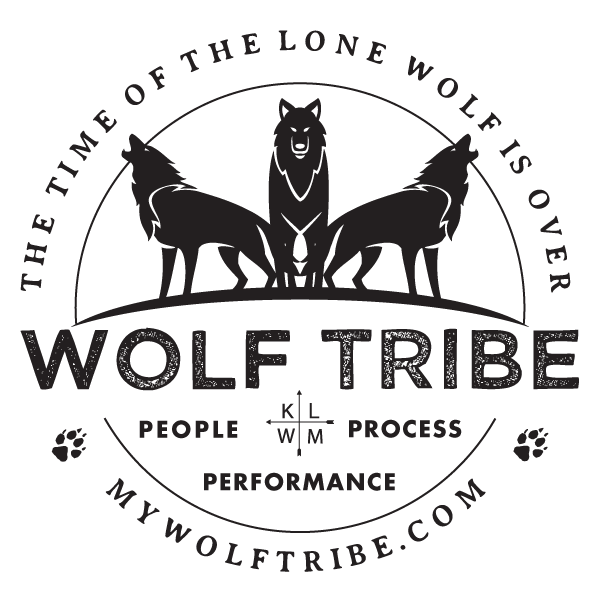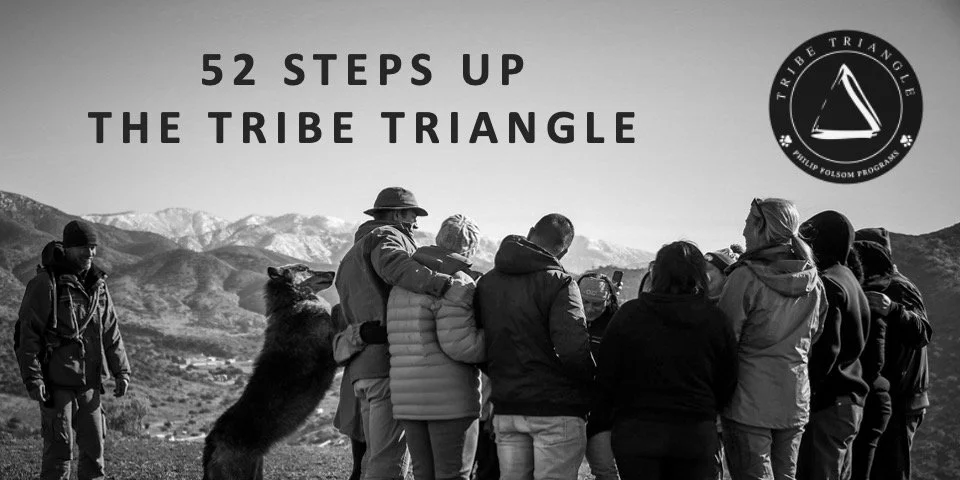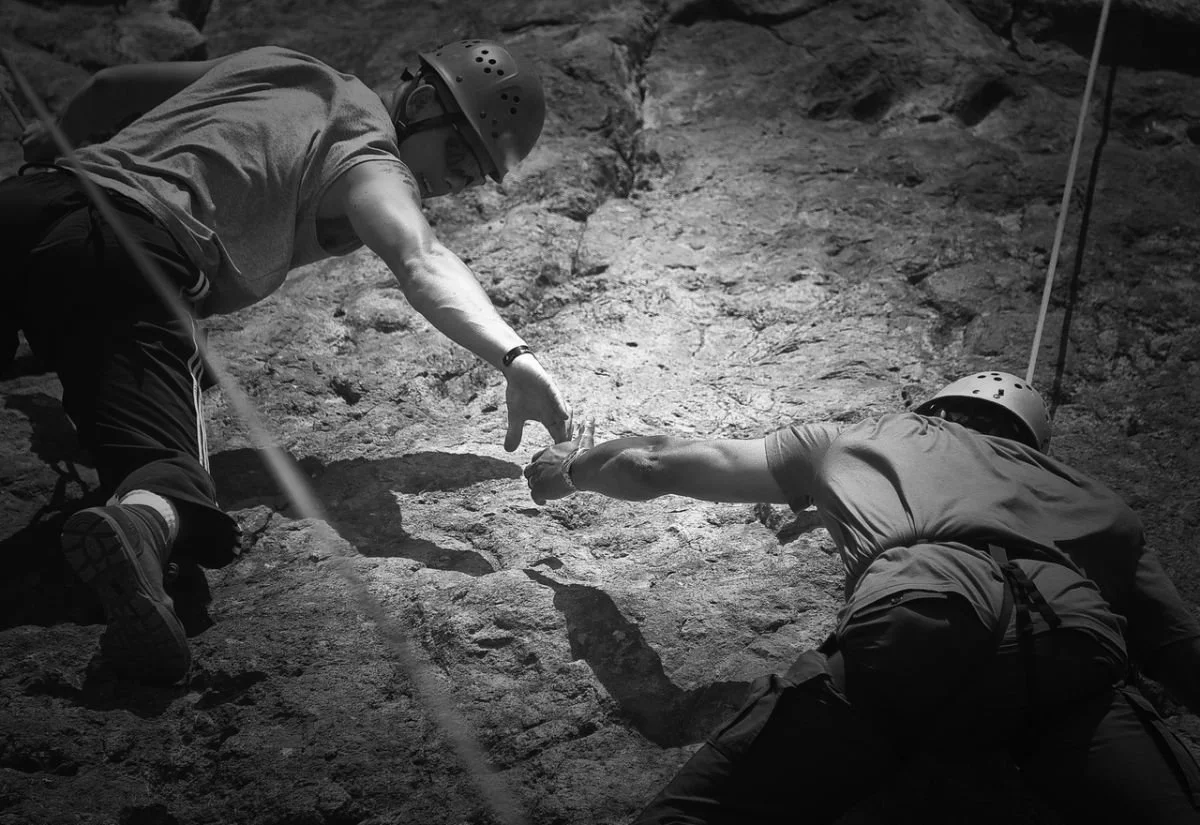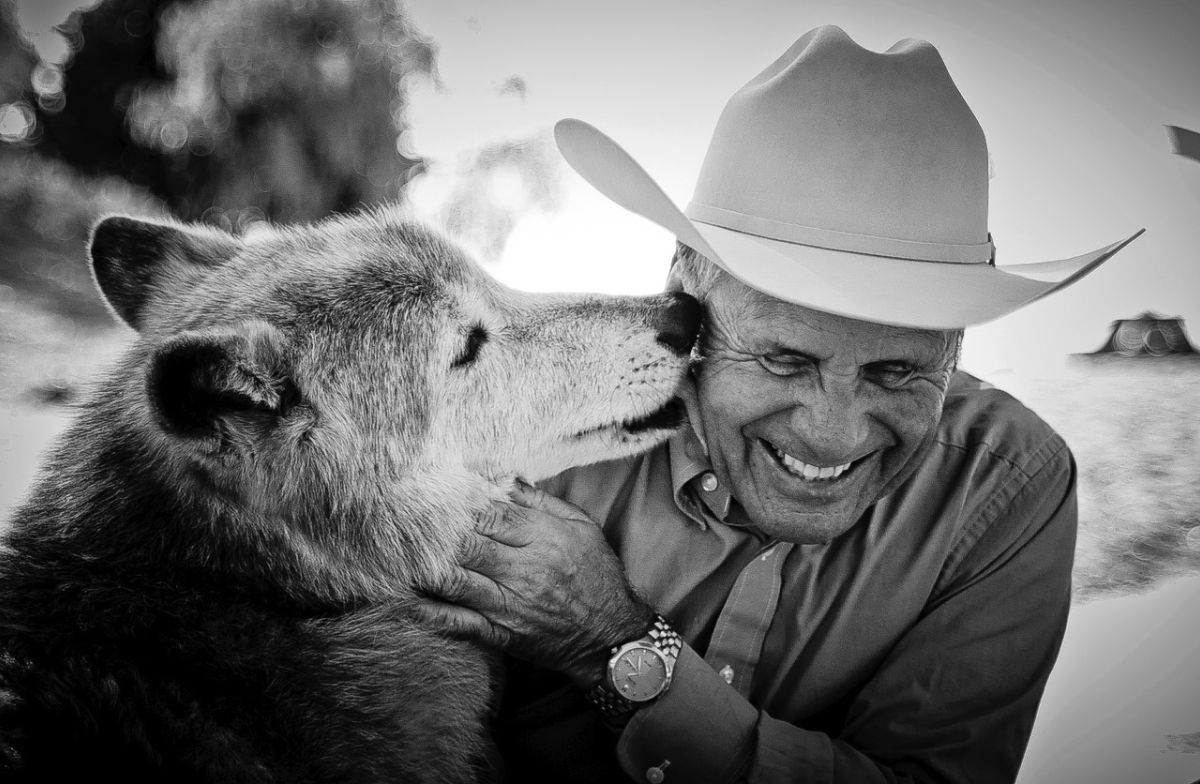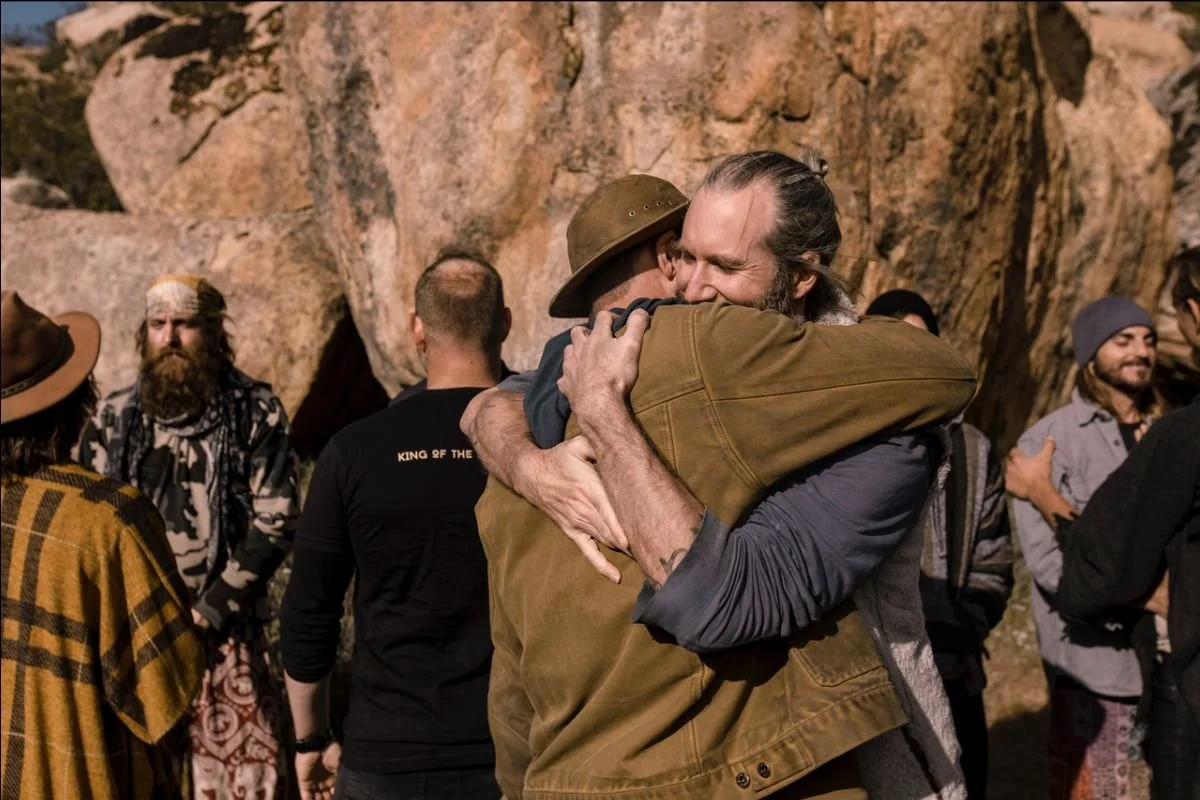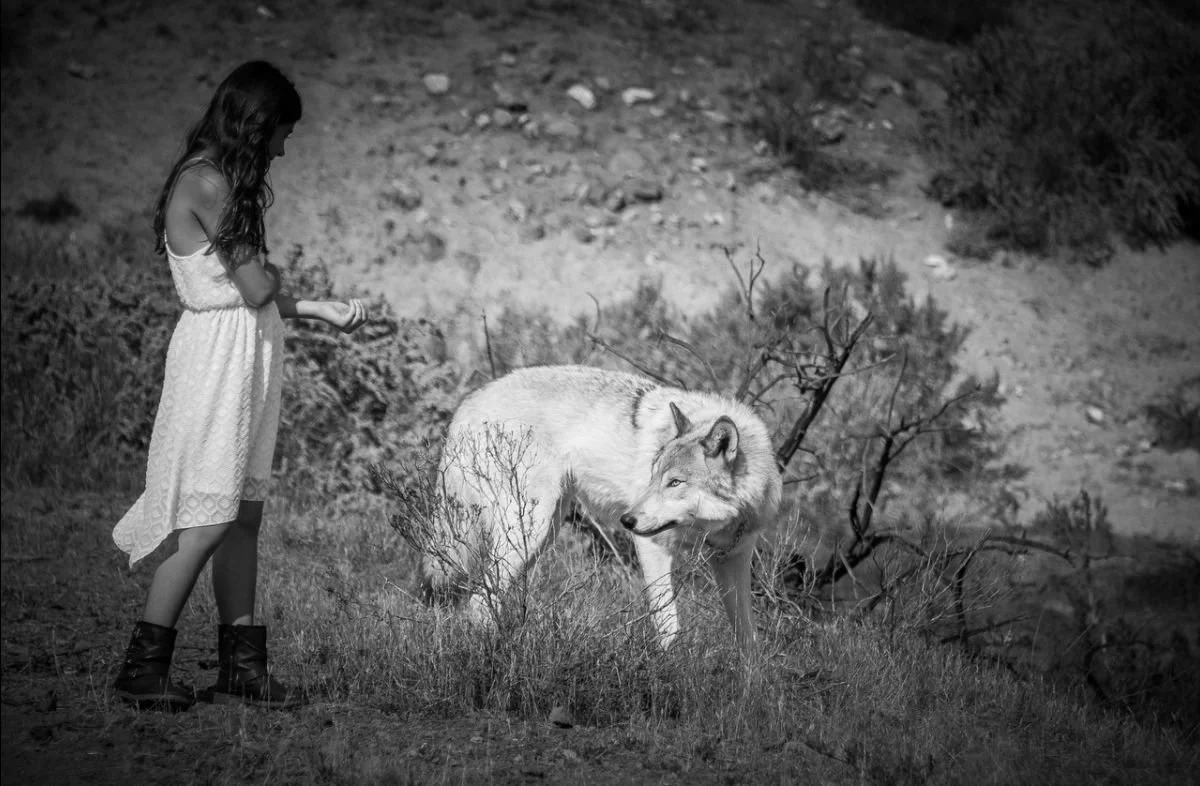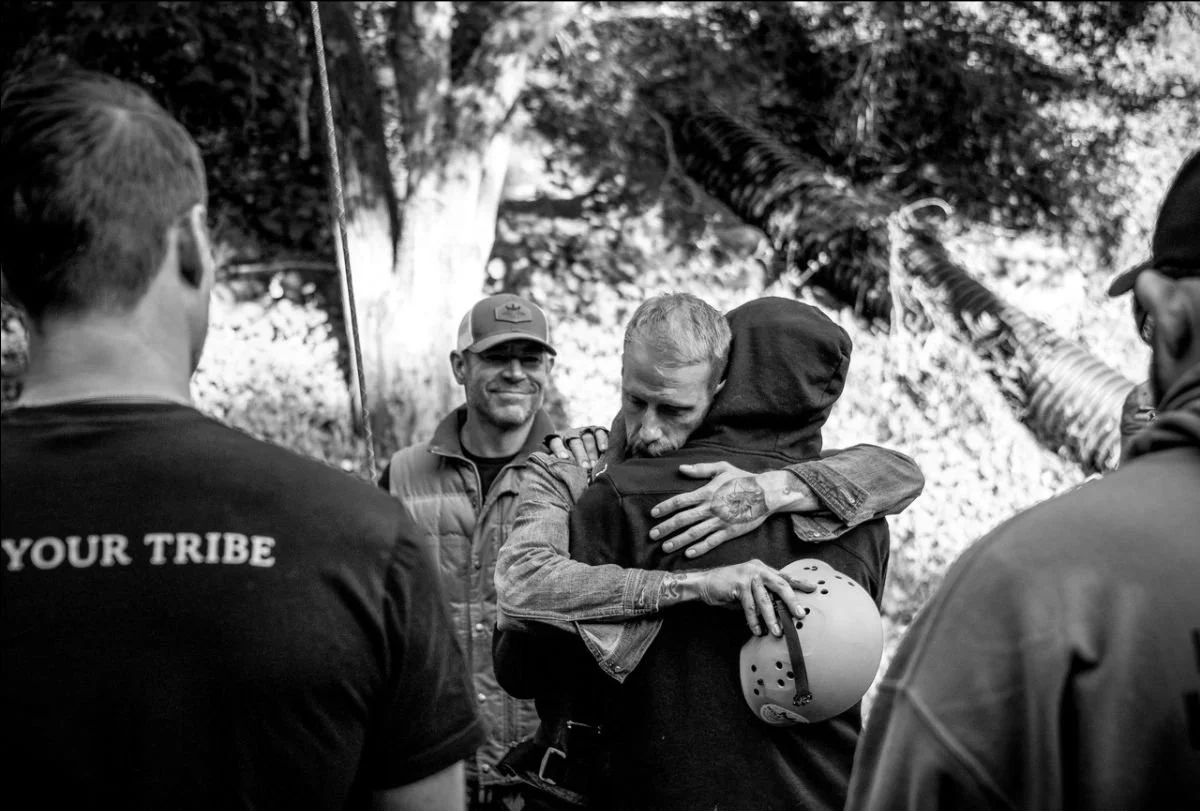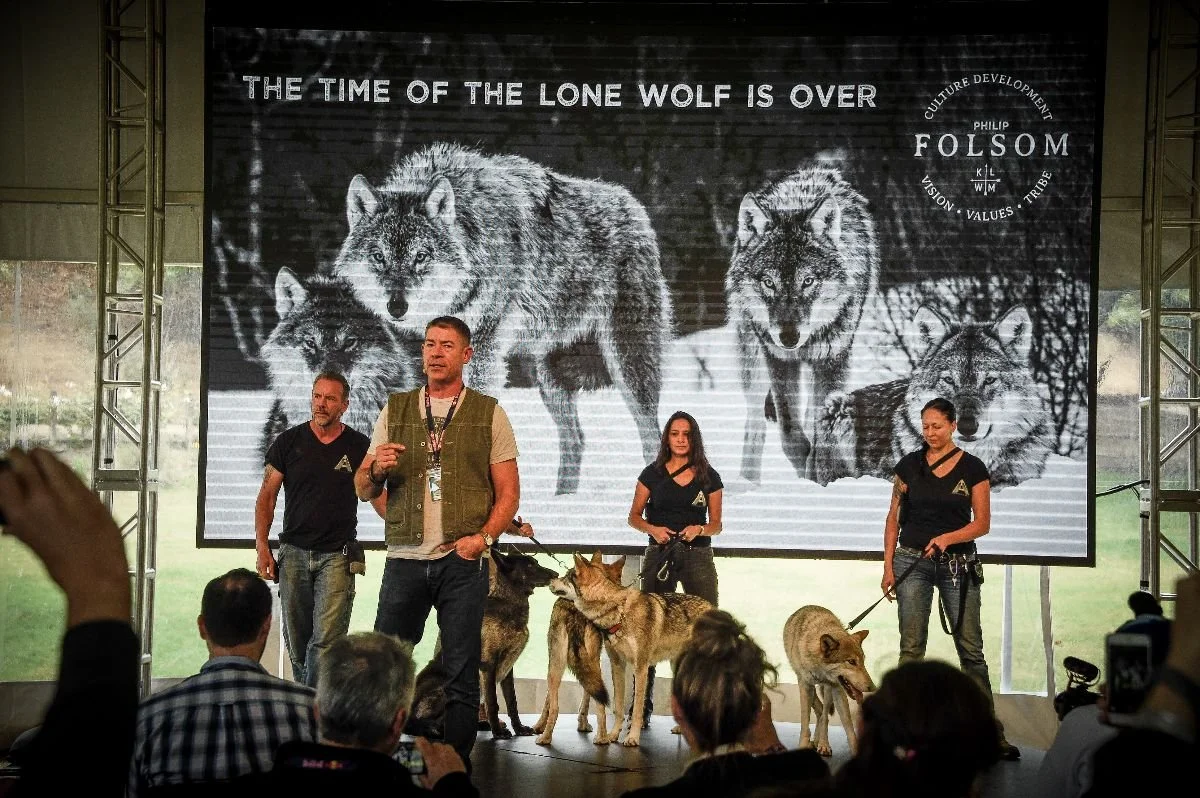Step 2 Up the Tribe Triangle: Moving from Pride to Honor and the First Lesson of the Wolves
On average, people become leaders of a family or work team at age 30 but don’t receive any formal leadership training until age 40. This gap between position and proficiency creates a mistake-filled decade of collateral damage that always comes from on-the-job training and the school of hard knocks. We deserve better and so do our people!
The Tribe Triangle is your instruction manual to fill that gap and intentionally and skillfully create your culture. It begins with some basic knowledge of the two main categories of culture: Pride and Honor.
Culture is the operating system of your family or organization. This operating system drives perspective, possibility, behavior, engagement, risk-taking and just about everything else that humans do when they get together in groups. No wonder culture is the number one lever for organizational performance!
Honor culture is the original OS. It is the shared beliefs and behavior system that was developed over hundreds of thousands of years as we struggled against the epic challenges of life before technology numbed us and dumbed us down.
We are a resilient species designed to struggle successfully against truly awesome adversity. We must remember that our core operating system is built to survive a world where predators literally hunted and ate us. We lived in an apocalyptic era of ice age freezing and flooding and did this with stone age tools. We are built to endure all of this in addition to starvation, with almost no technology beyond wood, stone and fire. Our true technology and the great competitive advantage was culture technology.
Culture unlike hardwired animal drivescontains adaptation. Culture can change and it must be taught. Over time this taught culture is refined into a series of traditions that carry across generations and these behaviors ensure the success and survival of the tribe and our species.
When we look at the cultures of indigenous peoples there is a set of common beliefs and behaviors that are universal. We call those beliefs and behaviors an honor-based culture.
Honor culture is intentionally designed as a group strategy to win in challenging, adverse environments. It contains every best practice of leadership and success in the playbook including engagement, retention, innovation and resiliency. Creating your Honor-Based culture is your roadmap for sustainable success in your family and at work.
The core pillar of Honor is duty to the tribe and the members of the tribe. This duty is the responsibility and service to something larger than ourselves. The core principle of duty drives accountability and also the indispensable need for a shared vision to work towards. It also requires a shared set of values to dictate group norms and behavior as well as a common mission to collaborate on. These three components, shared vision, values and mission are the foundation of every sustainably successful culture in history.
Long ago, all cultures were honor cultures because all people belonged to a family or tribe. We are built for honor and it feels good to be part of. Honor cultures inherently contain a sense of belonging because we are part of a cohesive shared culture that is bigger than ourselves. This sense of belonging drives resiliency, morale and all of the performance levers of successful teams.
Honor cultures contain kinship. This specific behavior requires training and it is not free and it is not easy. To participate in honor culture, we must sacrifice many things that are considered very important in today’s world. Some of these things include instant gratification, self-importance and the idea that our lives are the center of the world and reality. In a nutshell, honor culture requires an initiation into service.
Initiation is the ancient tradition of making someone a member of something special. It involves increased status as well as increased responsibilities. It also involves the separation from a past identity that contained a focus on self-gratification and replaced with responsibility and duty for the tribe.
In many ways, initiation is the uncomfortable transition from self to service and the process of maturity. Becoming a parent may be the ultimate form of initiation with leadership a close second.
Honor is the highest performing, most fulfilling and resilient culture available. This is proven by every championship sports team that makes individual sacrifices and the ‘extra pass’ to achieve the big team trophy at the end of the year. It is also demonstrated by every successful family, military unit or work team that makes individual sacrifices for the good of the whole. This is the ancient echo of tribe.
The Tribe-Culture of honor is deeply intimate. The feeling of belonging and meaning is something that all people want back if they had it and dream about it if they didn’t. That intimacy of Tribe-Culture is also its undoing.
Tribe-Culture is limited by size. Tribes are inherently small and that is their strength. People know each other deeply and are well aware of their strengths and their weaknesses. Accountability is immediate and easy because missions are shared and transparent. Mistakes are obvious and corrected and so are victories which are celebrated. Everyone is seen, important and belong.
All of this kinship fades then disappears when the group grows past the size of intimate, authentic relationships. For some teams this happens at 20 people. For some 120, but it will happen and it happened with us a species with the event of agriculture then the industrial revolution. Now in the information age we are almost completely pride based to the point that we even date and work remotely. How did we get here?
When we discovered farming and livestock long ago, we unlocked the core challenge of food and our tribes became villages. The villages beat back the predators and we solved that threat and our villages became cities. Eventually our technology overcame all of our survival needs and we became a global culture and tribe was lost.
The death of intimate honor culture created a new culture focused on the individual and that is known as Pride Culture. We were all born into Pride culture we all can feel that something important has been lost. That thing is tribe.
“It is no measure of health to be well adapted to a profoundly sick society”
-Krishnamurti
When tribe was lost so were our initiation rituals and now maturity is elusive and unsubstantial as is the meaning and purpose of life that only comes from service.
When tribe was lost so was the resiliency of kinship and belonging and mental health continues to plummet.
When tribe was lost so was the collective, collaborative reciprocity that allows us to hunt the big game of significance. Work without meaning leads to people disengaging and only 20% of people in Western culture are fully engaged and committed to their jobs.
When we lost tribe, we became a society of lost, lone wolves.
Remember ‘Ubuntu’ which means ‘I am because we are and we are because I am?” Sounds a lot like the Law of the wolf pack in Kipling’s Jungle book, right? “The strength of the wolf is the pack and the strength of the pack is the wolf.”
In the wolf world there are no long-term lone wolves. A lone wolf is either looking for a pack or they are starving to death.
The idea of the self-reliant, independent, lone wolf hero is a lie that has been sold to us for generations. At our very core we are interdependent, collaborative and reciprocal pack hunters. Wolves and humans are biologically very different but behaviorally and culturally we are almost identical. It’s no wonder the wolf is our first animal ally dating back 35,000 years!
A lone wolf without a pack has the same life and destiny as the lone human without a tribe. We may not be literally starving to death but if you are aware of the terrifying downward trend of clinical depression, anxiety, addiction and suicide you can see that we are starving for the belonging and resiliency that only comes from the kinship of honor culture.
Transforming Pride Culture into Honor Culture doesn’t mean we shouldn’t be as good of an individual as we can or that we aren’t unique and sovereign people. We are all those things, however, at some point every facet of our life will involve the collaboration with other people.
In these times we have focused too much on what our tribe and society should do for us and too little on what we should do for tribe and society.
Reclaiming the Ubuntu is reclaiming Honor.
Click here to watch the video of Step 2: Moving From Pride to Honor and the first Lesson of the Wolves
Leaders must write and speak
Answer these questions in your journal by really writing them down. Discuss them with at least one of your most important people and really listen to their response.
There have been times on really bad teams when the pride culture was so strong that you were forced to be a lone wolf to survive. What was one of those teams?
On that pride-based team how did you deal with individual failures and group defeats? How did the team respond to individuals trying to improve the culture?
People don’t leave jobs they leave bad managers. On that pride-based team what behavior did the leaders model and what was the effect of that behavior?
Ubuntu,
Philip Folsom
